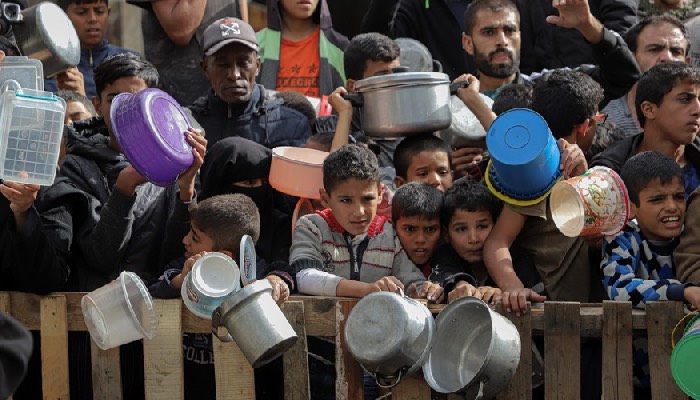
The humanitarian crisis in Gaza continues to worsen as the conflict between Israel and Hamas drags on, according to a report released Tuesday, June 25.
As per the Integrated Food Security Phase Classification (IPC), a report indicates an ongoing high risk of famine in the Gaza Strip, with over 2 million people, comprising 96% of the population anticipated to experience severe food insecurity at least until the end of September.
The IPC report states that nearly half a million people in Gaza are projected to face catastrophic levels of food insecurity, the most severe classification, where people "experience an extreme lack of food, starvation, and exhaustion of coping capacities," as per CNN.
The situation remains dire, with the report warning that any significant change could lead to a rapid deterioration into famine.
The reports say, "The last few months have shown that food and humanitarian access and malnutrition prevalence can change very quickly."
It further added, "The risk of epidemics is increasing, and eight months of extreme pressure on the population make them much more vulnerable to collapse into famine."
Dire conditions:
Israel's nine-month-long bombardment and siege have devastated Gaza's health care system and water infrastructure, creating dire conditions for over 2.2 million residents.
Increased Israeli attacks in Rafah have triggered mass displacement and outbreaks of infectious diseases in overcrowded tent camps lacking basic sanitation.
Meanwhile, humanitarian aid workers face immense risks distributing desperately needed aid due to the destruction of infrastructure supporting humanitarian efforts in Gaza.
However, the report emphasises that only a cessation of hostilities and sustained humanitarian access can reduce the risk of famine.
"The humanitarian space in Gaza continues to shrink, and the ability to safely deliver assistance is dwindling," the IPC report notes.
It added, "Improvements seen in April could be rapidly reversed if the current negative and unstable trajectory continues."
Meanwhile, Kate Phillips-Barrasso of Mercy Corps said, "The population cannot endure these hardships any longer. The toll of military action has been far too high, and we fear without dramatic changes to the provision of humanitarian aid, the death toll will climb as people succumb to months of deprivation."
While, UNRWA Commissioner-General Philippe Lazzarini has called for the "uninterrupted, regular, coordinated, and meaningful flow of humanitarian assistance" to alleviate the suffering in Gaza.
















